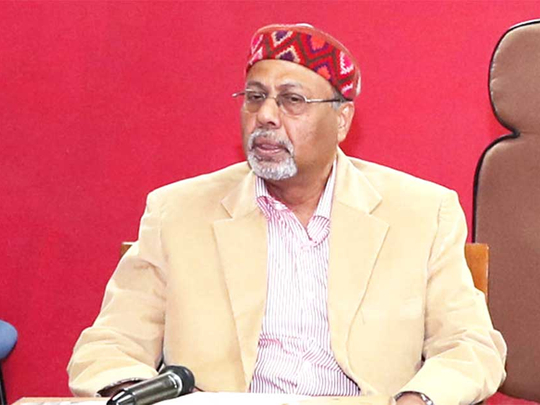
New Delhi: Closer cultural cooperation and better appreciation of each other’s history and heritage will help the UAE and India prosper much better in trade and commerce, a top Middle East expert said yesterday.
“Even without any emphasis on deep cultural exchange over the past few decades, there has been a surging trade of more than $50 billion, which is remarkable,” said Dr AK Pasha, director of Gulf Studies Programme at the School of International Studies in Jawaharlal Nehru University in New Delhi. “Trade has always been the binding factor in relations between India and the UAE. But the accomplishments that can be made when both nations are genuinely culturally closer are immense – and this will have a hugely positive impact on the ambitious bilateral trade targets that both countries have set for the future,” he said.
- Dr A.K. Pasha | Academic
Dr Pasha was speaking at an interaction with a UAE media delegation ahead of Indian Prime Minister Narendra Modi’s visit to the UAE on February 10 and 11. “The UAE, for instance, can set up a cultural centre in India on the lines of the US Information Center and the British Council. Such cultural outreach will go a long way in reflecting the true gamut of relations between the two nations,” Dr Pasha said. Similarly, concerted efforts must be made to create better awareness of Indian culture and heritage in the UAE, he said.
Professor Mujeebur Rahman, former chairperson of the Centre of Arabic and African Studies, agreed. “One of the first agreements that India and the UAE set up was on cultural exchange. Yet, we do not see much happening on the ground. The emphasis is always on trade and commerce,” said Rahman, who has acted as the official translator for multiple Arab heads of state when they met their Indian counterparts.
Citing an example of a previous cooperation, he said: “The Abu Dhabi Authority for Culture and Heritage in 2009 started a programme in cooperation with the Jamia Milia Islamia University to translate about 25 Indian books into Arabic, as part of the India-Arab Cultural Centre. There is a need for many similar projects.”
On the changing dynamics of UAE and India’s relations, Dr Pasha said: “Before the visit of Modi, the last time an Indian prime minister visited the UAE was in 1982. Back then, India was neither a nuclear power nor an economic powerhouse. It was not seen as a huge market for investment. It was not seen as politically stable. And it was not seen as a leading power in the world. Today, all these have changed. The UAE has also progressed rapidly, and that is reflected in the multidimensional relationship today.”












